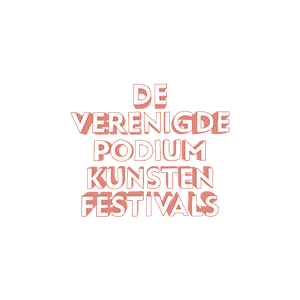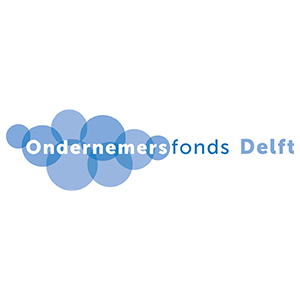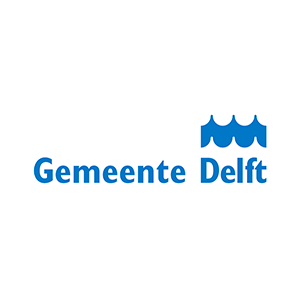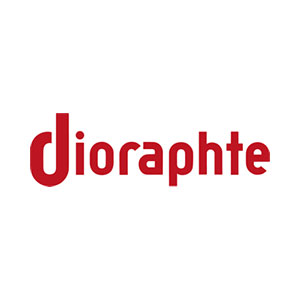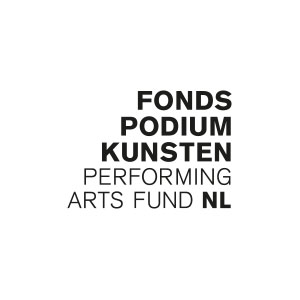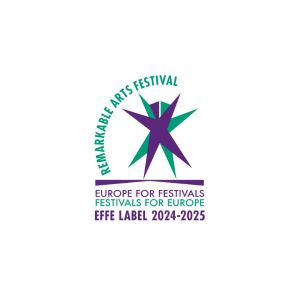Theatre collective Dystopia was the hit of the Delft Fringe Festival last year with its performance Vague News. With a convincing majority of votes, the group won the Audience Award. This year, theatre makers - and figureheads of our campaign image - Fleur Mennega and Mathijs Demper return with the performance TIJD ZAT. In it, with a ‘dystopian view’ and morbid humour, they examine our pursuit of immortality. ‘We think we as humans are just way too important!’
‘We kept saying, ‘This really is the last time’, only to add ‘unless we win the prize of course’ purely for fun.’ With three consecutive years of playing at the Delft Fringe Festival, Dystopia seemed to have reached its maximum number, but the theatre collective's third production, Vague News, proved to be so successful that it won the Audience Award 2024. Fleur Mennega: ‘We didn't see that one coming at all.’ Mathijs Demper: ‘After all, we hadn't won both times before that either, so at the closing party last year, we thought, also because it was Fleur's birthday that day: let's have a drink.’ Production manager Myrthe Ligtenberg: ‘And then we suddenly turned out to be the winners. We were shocked.’ Mathijs: ‘Then suddenly you're standing there with all these photographers around you. That really took some shifting.’ Laughing: ‘I had already had a few beers.’ Fleur: ‘Only afterwards did we recognise some omens: the day before, our performance had been heavily overbooked and festival director Roel Funcken had come to see it for the third time. At that moment we just thought: gosh, how sweet!’
Soft-sciencefiction
The three members of the young theatre collective each followed different studies: Fleur trained as a Theatre Teacher, Mathijs studied Writing for Performance and production manager Myrthe followed the Arts and Economics course. But all three did study at the HKU (Utrecht School of the Arts) and there they got to know each other at various projects. Mathijs: ‘The name Dystopia (’terrifying image of the future', according to Van Dale - ed.) came from Fleur.’ Fleur: ‘During our late-night brainstorming sessions, we often talked about how miserable the near future actually looks.’ Mathijs: ‘Our first three performances were about life after death, fake news and the apocalypse; pretty dystopian topics, in other words.’ Fleur: ‘One of our teachers at HKU thought we had really tapped into a new genre, which he described as soft-science fiction, a term we have embraced ever since.’ Myrthe: ‘At first we thought: we are making theatre about the future. But we increasingly realise: we're already in the middle of it.’
‘I go half-dead every single time’
In this respect, the combination of gloom and humour seems to characterise the collective's productions. Mathijs: ‘That gloominess does come from me. I can be quite pessimistic, I regularly think: what's the point of it all and where is the world going?’ Fleur: ‘I am quite optimistic about life. I also don't really see the point of being scared. But my preference in terms of humour is dark humour.’ Mathijs: ‘And I need that humour to deal with the situation. With humour, the whole world turns into one big farce. And so we make performances about that.’ Initially, Fleur and Mathijs did not intend to play those productions - besides writing and directing them - themselves. ‘But yes,’ says Fleur, ’when you're just starting out, where do you get actors from? And, we soon discovered: if you play yourself, you are so much more in relation to your audience, and that gives so much more depth and energy.’ Mathijs: ‘I go half-dead beforehand every time, always thinking: why am I doing this, I can't do this, I'm not trained for this. But once I notice that things are going well and that the audience is enjoying themselves, I can have a lot of fun being on stage myself.’
Hidden spots
In 2022, Dystopia played at the Delft Fringe Festival for the first time with Ruisbuis, in which the group gives short shrift to our eternal regrets. Myrthe: ‘At the time, we were actually just looking for a place to play. But right after that first time, we knew: we're going to do this again next year!’ Fleur: ‘It is so unique that you get to play at so many different locations during one festival edition. This also gave our production different layers and twists all the time, something we also consciously took into account when developing our next productions.’ Mathijs: ‘I really like the latter. With every production we now look at: where are the hatches and doors, where are the hidden places, where do we put the audience, where is the view through to the outside, where can we hide, et cetera?’ Fleur: ‘In addition, it's really great that you get to know so many other people in the field during the festival, which expands your network considerably. That ranges from other makers to programmers and from audience members to volunteers. Last time, for instance, we heard from several volunteers that they liked working in our productions because they thought we were so cool.’ Myrthe: ‘We were also approached last year by the artistic director of impresario Buro Bannink, with whom we now collaborate for school performances, and the NTR recently made a portrait of us for the series Op de planken (to be seen again on NPO Start - ed.).’ Fleur: ‘It is of course super nice that we won an award with our participation in Delft Fringe last year, but I think it is even nicer that it is a Public Prize.’ Mathijs: ‘The fact that the audience believes in you does me more than a three-star review.’
Uploading or freezing our brains
For their award-winning Vague News, Fleur and Mathijs delved into the world of truth-telling - ‘What is true? And who decides?’ - the new show TIME SATISFIED revolves around our much-coveted immortality. ‘For centuries, humans have been looking for ways to live longer. From our ‘dystopian view’, in our new production we explore how, with the use of technology, that immortality seems to be getting closer and closer: from uploading brains on computers to having them or other body parts frozen.’ Fleur: ‘What drives us to want these things? Doesn't mortality actually give meaning to your life? After all, why set goals, for example, when you have all the time in the world?’ With the current changing balance of power in the world, the theme of their production only seems to become even more topical. Mathijs: ‘After all, with the election of Trump, the big tech bosses have even more opportunities to implement their nefarious plans. Take Elon Musk experimenting with his Neuralink to implement a brain chip in people with certain conditions. Something like that does make me fantasise about how he might misuse these technologies." Myrthe: ‘As humans, we just consider ourselves far too important. Given our impact on the earth, it would be very good if we all left it soon, instead of obsessively striving for immortality. And by this I do not mean that we should all go to Mars then.’
Ready for the next step
With TIME ZAT, Dystopia will be at four different festival locations this time and on Tuesday 27 May, the group will open the festival at Theatre De Veste. Myrthe: ‘We want to approach this first location like all the others and therefore deliberately use the whole space.’ Mathijs: ‘We are definitely not going to make a regular black box performance.’ Laughs: ‘So expect us also to be on the stands or on the grid (tubing above the stage - ed.), for example.’ The three are hugely looking forward to their fourth festival edition, but, quite honestly, also to the period after. Fleur: ‘We've actually buffeted along at a stretch over the past few years, so we need some reflection.’ Mathijs: ‘And we are ready for the next step.’ Fleur: ‘We want to free up time for a grant application and we also have a long list of things we would like to try out in the coming years, such as, for example: making a full-length performance, releasing a production on location, working with film, making a podcast, being on Oerol, and so on.’ Mathijs: ‘But the theme we want to explore is always paramount. So we don't make a film for the sake of a film, nor a podcast for the sake of a podcast.’ Fleur: ‘What we mainly look forward to is spending another evening as friends, just the three of us - without any “production drive” and then just seeing whether something pops up, and if so, what!’
- Text: Astrid van Leeuwen
- Photo: Campaign image performance TIJD ZAT van Dystopia. Fotograaf: Sjoerd Derine.

